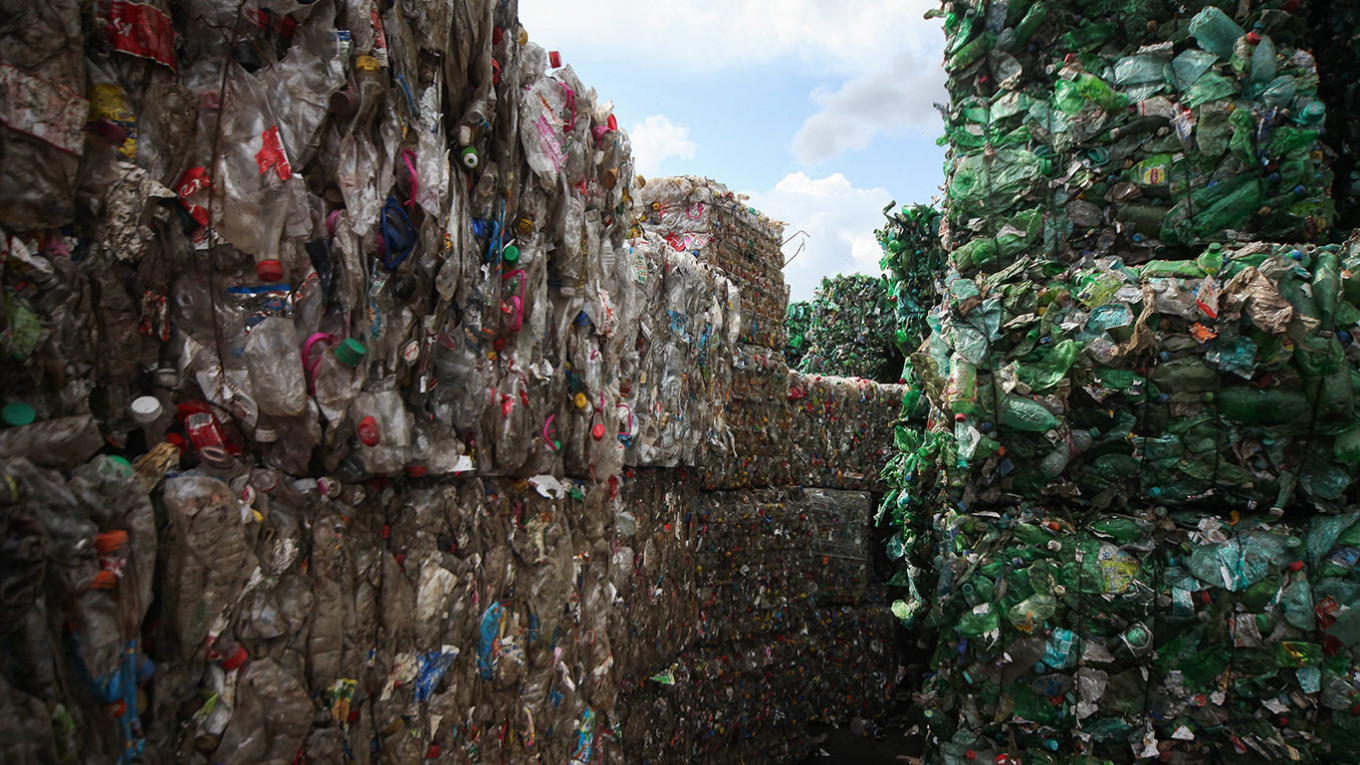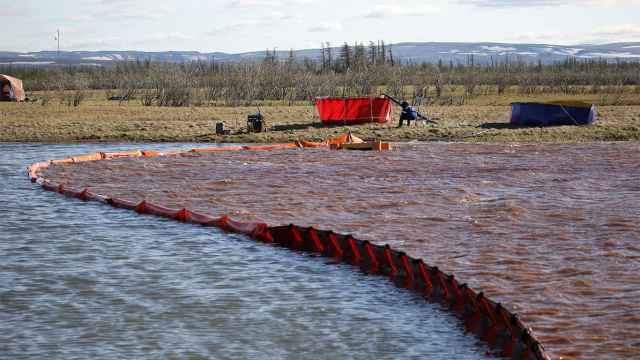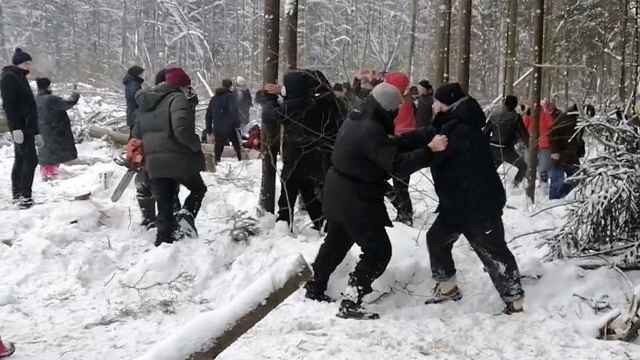Russia would benefit from joining an ambitious international agreement that would require it to curtail plastics waste throughout its entire supply chain, environmental activists from Greenpeace Russia told The Moscow Times.
Delegations from world governments and international bodies are set to draft a resolution for the new treaty to curtail plastic pollution at the UN Environment Assembly (UNEA) when it kicks off in Nairobi in late February.
Two major blueprints for the resolution have so far been proposed: one by Japan, another one by Peru and Rwanda.
While Japan’s proposal focuses on cutting marine plastic pollution, Rwanda and Peru’s version calls for regulating plastics production (which requires fossil fuels) as well as its transportation, usage and disposal, thus limiting plastics throughout the entire supply chain.
“The main difference between the Peru and Rwanda version from the Japanese version is in the attention to the entire life cycle of the plastic,” Anna Kryukova, a Greenpeace Russia expert on zero-waste projects, told The Moscow Times.
In a recent statement, Greenpeace Russia calls on Russia to adopt the more ambitious Peru-Rwanda version of the treaty. This version would be easier to enforce and could result in significant pollution reductions, but all major economies must sign on for it to be effective, Greenpeace said.
Signing onto an ambitious, legally binding global plastics treaty would also benefit Russia’s economy, Kryukova said.
“A complex treaty on plastics will create new jobs and give a boost to small businesses” due to growing demand for reusable packaging, she said.
“Introduction of alternative delivery systems and reusability, repair and support services for these products will create a number of jobs that would be at least 200 times higher than what the waste disposal industry has now,” Kryukova said.
The environmental group has also launched an online petition addressed to Natural Resources and Environment Minister Alexander Kozlov, asking him to back the resolution suggested by Rwanda and Peru when he represents Russia at the UNEA. So far, the petition has received over 11,000 signatures.
Kozlov said last year that Russia plans to ban the use of single-use plastic products by 2024. The Russian government also aims to make 85% of all plastic packaging produced in Russia recyclable by 2030, Victoria Abramchenko, Deputy Prime Minister for environmental affairs, said at a conference last May.
UN environmental experts have been calling for global businesses and governments to limit their carbon emissions and other types of pollution throughout their supply chains, not just in their own factories and stores.
In 2019, 170 countries including Russia pledged to “significantly reduce” their use of single-use plastics by 2030.
A Message from The Moscow Times:
Dear readers,
We are facing unprecedented challenges. Russia's Prosecutor General's Office has designated The Moscow Times as an "undesirable" organization, criminalizing our work and putting our staff at risk of prosecution. This follows our earlier unjust labeling as a "foreign agent."
These actions are direct attempts to silence independent journalism in Russia. The authorities claim our work "discredits the decisions of the Russian leadership." We see things differently: we strive to provide accurate, unbiased reporting on Russia.
We, the journalists of The Moscow Times, refuse to be silenced. But to continue our work, we need your help.
Your support, no matter how small, makes a world of difference. If you can, please support us monthly starting from just $2. It's quick to set up, and every contribution makes a significant impact.
By supporting The Moscow Times, you're defending open, independent journalism in the face of repression. Thank you for standing with us.
Remind me later.







